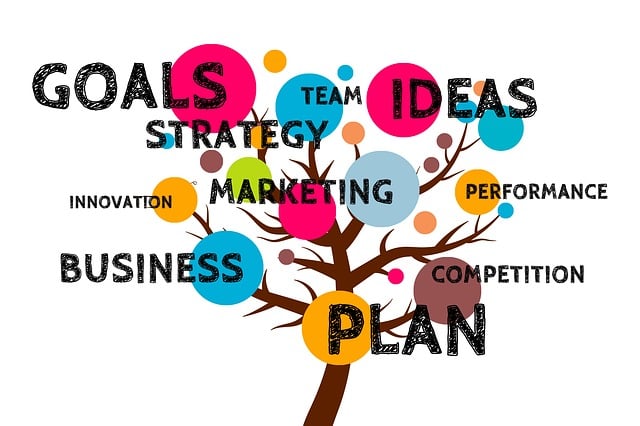Event planning is a vital strategy for local businesses to boost marketing efforts, engage with communities, and amplify brand visibility. Successful events are about blending creativity with solid execution, designed to appeal directly to the local audience's interests. These gatherings offer an opportunity for businesses to deliver unique experiences that can forge strong relationships and create lasting impressions. It's essential to align the business's values with consumer preferences, effectively manage resources, and employ local assets. Strategic event planning involves setting clear objectives, managing timelines, and budgeting appropriately, guided by data-driven insights to maximize customer engagement. Expanding reach through collaborations with other businesses and influencers can make events more impactful for a wider audience. Ensuring that logistics run smoothly, the content is engaging, and follow-up strategies are in place post-event, including social media interaction and feedback collection, helps transform these gatherings into consistent brand experiences that foster customer loyalty and stimulate local economic growth. By making events a meaningful part of community life, local businesses can solidify their role as integral entities within the neighborhood, contributing positively to its social fabric and enhancing the local economy. This guide emphasizes the importance of understanding local tastes and cultural nuances for successful event planning, offering actionable steps for businesses to create memorable experiences that resonate with their audience and reflect their unique brand identity.
Explore the dynamic landscape of event planning for local businesses with our comprehensive guide. Delve into strategies that craft impactful events, harness community engagement to foster relationships, and master the metrics that measure success. This article is a vital resource for businesses aiming to elevate their event presence within the local market, ensuring each endeavor not only captivates but also contributes to long-term growth and brand loyalty.
- Crafting Impactful Events: A Strategic Guide for Local Businesses
- Leveraging Community Engagement: Local Business Events as Relationship Builders
- Measuring Success: Metrics and Analytics for Local Business Event Planning
Crafting Impactful Events: A Strategic Guide for Local Businesses

In the realm of local business marketing, event planning stands as a pivotal strategy to engage with the community and amplify brand presence. Crafting impactful events requires a blend of creativity, meticulous organization, and an understanding of the target audience’s preferences. Local businesses can harness the power of live interactions by designing events that offer unique experiences, foster relationships, and create memorable moments for attendees. The key to successful event planning for local businesses lies in the strategic integration of brand values, alignment with consumer interests, and leveraging local resources effectively. By thoughtfully selecting themes, venues, and activities that resonate with the community, businesses can position themselves as integral and indispensable parts of their customers’ lives.
To execute a successful event, local businesses must plan ahead, setting clear objectives, timelines, and budgets. Utilizing data-driven insights to understand customer behavior and preferences is crucial in tailoring events that not only attract but also retain customers. Additionally, collaboration with other local businesses and influencers can broaden the event’s reach and impact. By focusing on seamless logistics, engaging content, and post-event engagement strategies, such as social media follow-ups and feedback collection, local businesses can transform one-off events into ongoing brand experiences that drive customer loyalty and stimulate economic activity within the community.
Leveraging Community Engagement: Local Business Events as Relationship Builders

Event planning for local businesses can significantly benefit from incorporating community engagement strategies. These events serve as more than mere marketing opportunities; they are pivotal in fostering relationships within the local fabric. By thoughtfully integrating community members into the planning and execution of an event, local businesses can create a sense of ownership and belonging among attendees. This participation not only strengthens the business’s ties to the community but also enhances the social fabric by bringing together individuals with diverse backgrounds and interests. The key is to identify the unique characteristics and needs of the local populace and tailor events that resonate with their values and interests, thereby ensuring a higher likelihood of engagement. For instance, a local bookstore could host a community storytelling evening, inviting residents to share personal stories or favorite books, fostering a shared experience that transcends the transactional nature of typical consumer interactions. By doing so, businesses can position themselves as integral and supportive parts of the community, which in turn, can lead to increased loyalty and a positive reputation. This approach not only nurtures customer relationships but also contributes to a thriving local economy and a cohesive community.
Furthermore, successful event planning for local businesses demands an understanding of the seasonal rhythm of the community, cultural events, and local interests. By aligning events with these factors, businesses can attract a wider audience and create memorable experiences that resonate on a personal level. The process involves active listening and responsive planning to ensure that each event adds value beyond the immediate sales impact. For example, a local restaurant could organize an annual food festival that showcases regional cuisine, celebrating both the area’s culinary heritage and the diversity of its inhabitants. Such events can become anticipated traditions that bring people together, creating a platform for cultural exchange and networking. This strategic approach to event planning not only enhances community engagement but also positions local businesses as dynamic and engaged participants in their communities’ ongoing narratives.
Measuring Success: Metrics and Analytics for Local Business Event Planning

Local businesses play a pivotal role in community development, and well-executed events are a cornerstone of their engagement strategy. This article has outlined key strategies for crafting impactful events that not only enhance brand visibility but also foster meaningful connections. By integrating community engagement into event planning for local businesses, these enterprises can build enduring relationships with customers and stakeholders alike. Furthermore, the metrics and analytics discussed offer a robust framework for measuring the success of such endeavors. As a result, local businesses are equipped to host events that not only resonate within their immediate environment but also contribute to the broader economic and social fabric of their communities.






